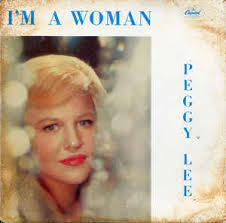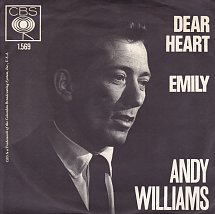Related Research Articles

Al Martino was an American traditional pop and jazz singer. He had his greatest success as a singer between the early 1950s and mid-1970s, being described as "one of the great Italian American pop crooners", and became known as an actor, particularly for his role as singer Johnny Fontane in The Godfather.
"You Always Hurt the One You Love" is a pop standard with lyrics by Allan Roberts and music by Doris Fisher. First recorded by the Mills Brothers, whose recording reached the top of the Billboard charts in 1944, it was also a hit for Sammy Kaye in 1945.
"I Really Don't Want to Know" is a popular song written by Don Robertson (music) Howard Barnes (lyrics). The song was published in 1953.

"Tonight You Belong to Me" is an American popular song, written in 1926 by lyricist Billy Rose and composer Lee David. The first ever recording was made by Irving Kaufman in 1926 on Banner Records. In 1927 Gene Austin recorded it and the song became a major hit. Another popular recording during this time was by Roger Wolfe Kahn and his Orchestra.
"And That Reminds Me", also known as "My Heart Reminds Me", is a popular song.
"Have I Told You Lately That I Love You?" is a popular song written by Scotty Wiseman for the 1944 musical film, Sing, Neighbor, Sing and performed by Lulu Belle and Scotty. It was their greatest hit and one of the first country music songs to attract major attention in the pop music field. Although the song was featured in the movie, it was not released by Lulu Belle and Scotty until 1947. The first released version of this song was by Gene Autry in 1945.

"Melody of Love" is a popular song. The music was originally written by Hans Engelmann in 1903. The lyrics were added by Tom Glazer in 1954.
"You're Nobody till Somebody Loves You" is a popular song written by Russ Morgan, Larry Stock, and James Cavanaugh and published in 1944. The song was first recorded by Morgan and was a hit for him in 1946, reaching the No. 14 spot in the charts. The best known version was Dean Martin's, which was released in 1960 and reissued in 1964.

"My Prayer" is a 1939 popular song with music by salon violinist Georges Boulanger and lyrics by Carlos Gomez Barrera and Jimmy Kennedy. It was originally written by Boulanger with the title Avant de mourir 1926. The lyrics for this version were added by Kennedy in 1939.

The song "I'm a Woman" was written by famed songwriting duo Jerry Leiber and Mike Stoller, and was first recorded in 1962 by Christine Kittrell.
"Hawaiian Wedding Song" originally entitled; "Ke Kali Nei Au" was adapted from a 1926 love song written by Charles E. King and originally recorded by Helen Desha Beamer in its original version but re-written by Al Hoffman and Dick Manning and renamed as "Hawaiian Wedding Song". The song was recorded by Bing Crosby, Andy Williams and Elvis Presley.

"Love T.K.O." is a song written by Cecil Womack and Gip Noble, Jr. It was written for soul singer David Oliver, and appeared first on his album Here's to You in 1980. Cecil and Linda Womack recorded the song themselves as Womack & Womack and it appeared simply as "T.K.O." on their debut album Love Wars in 1983.
"Because You're Mine" is a song written by Nicholas Brodszky with lyrics by Sammy Cahn taken from the 1952 musical film of the same title. It was recorded by Mario Lanza and Nat King Cole in two different versions, which were both released as singles in 1952. In the US, Lanza's record reached No. 7 in the Billboard charts and Nat King Cole's version achieved the No. 16 position. The Mario Lanza recording also reached No. 3 in the UK Singles Chart, spending 24 weeks within the top 12, and was Lanza's only UK Top 12 hit. The Nat King Cole recording was included on his album Top Pops, placed three spots lower and spent three weeks on the chart. The Mario Lanza recording was one of his three million-selling singles.
"I Love You Because" is a song written and recorded by country music singer-songwriter Leon Payne in 1949. The song has been covered by several artists throughout the years, including hit cover versions by Al Martino in 1963 and Jim Reeves in 1964.

"Dear Heart" is a song written by Henry Mancini, Ray Evans, and Jay Livingston and performed by Andy Williams. It appears on the 1965 Andy Williams album, Andy Williams' Dear Heart. The song was the theme to the 1964 movie Dear Heart. It was nominated for the Academy Award for Best Original Song and also nominated for best song at the 22nd Golden Globe Awards.
"What Am I Living For" is a song written by Fred Jay and Art Harris and performed by Chuck Willis featuring the Reggie Obrecht Orchestra and Chorus. It reached No. 1 on the U.S. R&B chart and #9 on the U.S. pop chart in 1958.
"Meet Mister Callaghan" is a 1952 song written by Eric Spear and performed by Les Paul in a hit recording.
"With These Hands" is a song written by Benny Davis and Abner Silver and performed by Eddie Fisher featuring Hugo Winterhalter and His Orchestra. It reached number 7 on the U.S. pop chart in 1953.
"What Will Mary Say" is a song written by Eddie Snyder and Paul Vance. It was originally performed and issued as a single by Mark Dinning in 1961, but did not chart. Two years later, the song was recorded and released by Johnny Mathis, who made the song a popular hit. Mathis' version of "What Will Mary Say" reached #3 on the adult contemporary chart, #9 on the U.S. pop chart, #21 on the U.S. R&B chart, and #49 on the UK Singles Chart in 1963.

"Sha La La" is a song written by Robert Mosely and Robert Taylor. The Shirelles released the original version of the song as a single in 1964, reaching #15 on the U.S. R&B chart and #69 on the U.S. pop chart.
References
- ↑ "secondhandsongs.com". secondhandsongs.com. Archived from the original on August 19, 2013. Retrieved December 23, 2020.
- ↑ "Al Martino, I Love You More and More Every Day/Tears and Roses". Discogs . 27 June 1964. Retrieved March 15, 2019.
- ↑ "Al Martino, "I Love You More and More Every Day" Single Release" . Retrieved March 15, 2019.
- ↑ "Al Martino, "I Love You More and More Every Day" Chart Positions" . Retrieved March 15, 2019.
- ↑ "Top Records of 1964", Billboard , January 2, 1965. p. 6. Retrieved March 15, 2019.
- ↑ "Sonny James, "I Love You More and More Every Day" Chart Position" . Retrieved March 15, 2019.
- ↑ "Lawrence Welk and His Orchestra, Early Hits of 1964". Discogs . 1964. Retrieved March 15, 2019.
- ↑ "Jean Shepard, Introducing: Bob Braun". Discogs . 1965. Retrieved March 15, 2019.
- ↑ "Jean Shepard, It's a Man Every Time". Discogs . 1965. Retrieved March 15, 2019.
- ↑ "Kitty Wells, Yours Truly". Discogs . 1973. Retrieved March 15, 2019.
- ↑ "Marilyn Sellars, Gather Me". Discogs . 1975. Retrieved March 15, 2019.
- ↑ "Pat Boone, Love Letters". Discogs . 1980. Retrieved March 15, 2019.
- ↑ "Foster and Allen, Heart Strings". Discogs . 1992. Retrieved March 15, 2019.